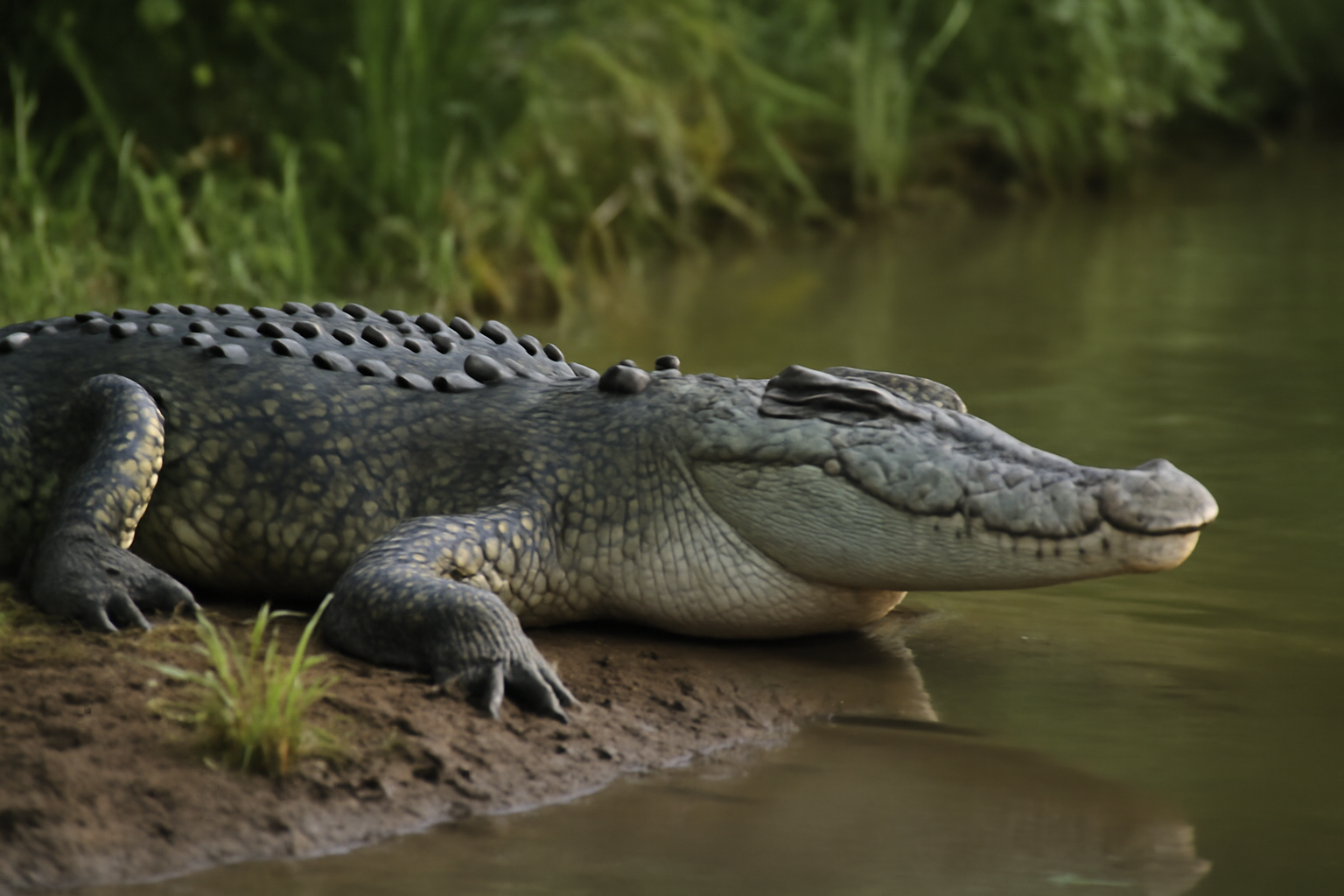Saltwater Crocodile [Crocodylus porosus]

Description
The saltwater crocodile (Crocodylus porosus), also known as the estuarine crocodile, Indo-Pacific crocodile, marine crocodile, sea crocodile or informally as saltie, is the largest of all living reptiles, as well as the largest riparian predator in the world. Males of this species can reach sizes up to 6.30 m (20.7 ft) and possibly up to 7.0 m (23.0 ft) in length. However, an adult male saltwater crocodile rarely reaches or exceeds a size of 6 m (19.7 ft) weighing 1,000 to 1,200 kg (2,200–2,600 lb). Females are much smaller and often do not surpass 3 m (9.8 ft). It is a formidable and opportunistic apex predator capable of taking almost any animal that enters its territory, including other apex predators such as sharks, a variety of freshwater and saltwater fish, invertebrates, such as crustaceans, various reptiles, birds and mammals, including humans. It has a wide distribution, populating the eastern coast of India, throughout Southeast Asia and northern Australia.
Taxonomy
| Phylum |
Chordates
Chordata
|
|---|---|
| Class |
Reptiles
Reptilia
|
| Order |
Saltwater Crocodiles
Crocodylia
|
| Family |
True Crocodiles
Crocodylidae
|
| Genus |
Saltwater Crocodile
Crocodylus
|